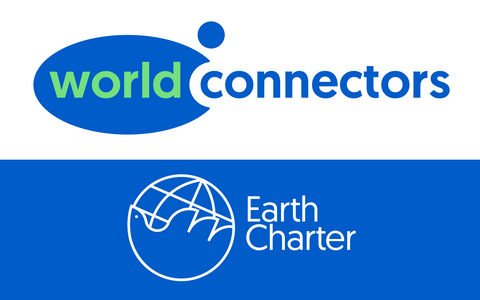Education
The education session set out to collect the ideas and opinions of the participants as an orientation on the subject of education. The education session started off with unanimous agreement among the participants regarding the crucial role of education with regard to the interests of future generations. We need to be thought to encompass those interests in our thinking and actions and education is the tool for that. The suggestions and opinions were discussed in four categories where each category provides input for the shaping of the next in a closed loop. The used categories where Teacher Student relationships, Teacher Training, Organization of Education, Research.
Teacher Student relationship – Three issues stood out when discussing this category. First, education could become more rooted in ‘real life’. This means an outwards directed orientation, learning from the world outside the classroom and using current events for teaching. Second, education should stimulate a much broader development of students in which student happiness is to play a guiding role. All students are unique and should be able to develop all their talents and forms of intelligence. Including social, emotional, creative or spiritual intelligence, which are now still often neglected in favor of cognition or theory. Also skills, how to treat yourself, other people and the earth, norms and values should be given more attention relative to current practices. The image of customized “bottom-up” education where students form the base of a pyramid and government the top fits with this notion. Third, teachers should be given more freedom to express their own enthusiasm, values, opinions, passions, visions and personalities through their teaching. This helps to inspire their students to develop their own personalities. This also requires more freedom for teachers to design and adapt their classes to their unique situation and students. Examples of the above suggestions can be found in the Dutch documentary ‘Leraar aan de Macht’, Waldorf schools or elementary school Bloemhof where a teaching philosophy by Henk Oosterling is being applied. Identified barriers to the above suggestions are the current focus of effectiveness and short term and the (low) social status of teachers.
Teacher Training – Much of what has been said about student teacher relationships applies to teacher training as well. In this case the future teachers find themselves in the role of student. Teacher training should pay more attention to broadening the horizon of future teachers. It should focus more on self-awareness and -consciousness of the own identity. On developing a teacher’s emotional and soft skills. On teachers forming their own opinions, lifelong learning and guiding the development of students, relative to content. Half-open curricula and peer-2-peer learning are examples that with these notions.
Organization of education – Keywords that were emphasized when discussing the organization of education where flexibility and adaptability and an ‘outward focus’. This means the school should be firmly embedded in the local community with students learning from projects that are related to the (local) community. Organizing education in such a way requires the before mentioned adaptability and flexibility, stimulates experimenting and investigating by the students and transcends the boundaries of course and disciplines. Something valued by the participants because it would stimulate students to think in systems. Other suggestions for organizing education focused on horizontal organizations and direct democracy solutions where students, parents and teachers are the driving force. Semcor style and toekomstbehendig.nl where mentioned as examples of this type of thinking about organizing education.
Education research – Finally with regard to education research the participants pointed out the importance of participation by students and teachers in research and the benefits of short feedback loops.
Full list of reports break-out sessions:
Institutions
Corporate Governance
Knowledge for the Future
Environment and Land Use
Education
Creating an Inclusive Society
